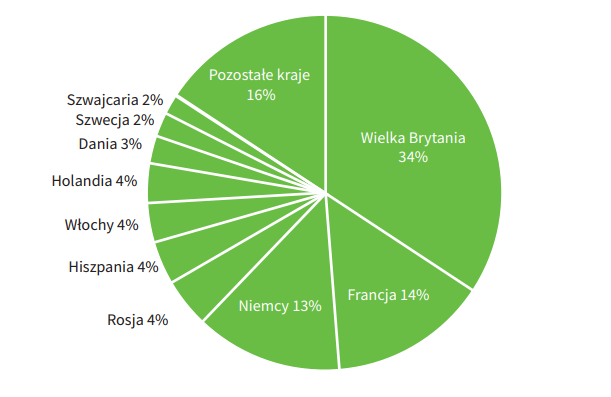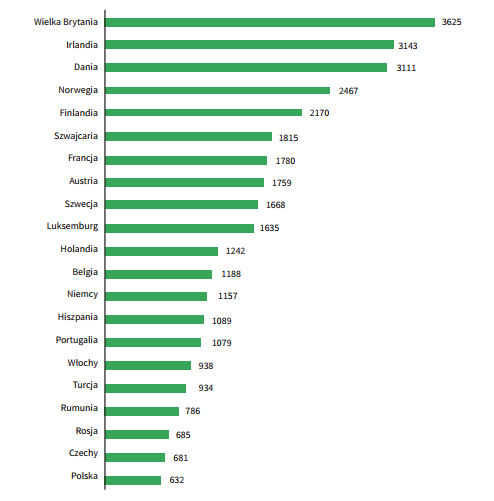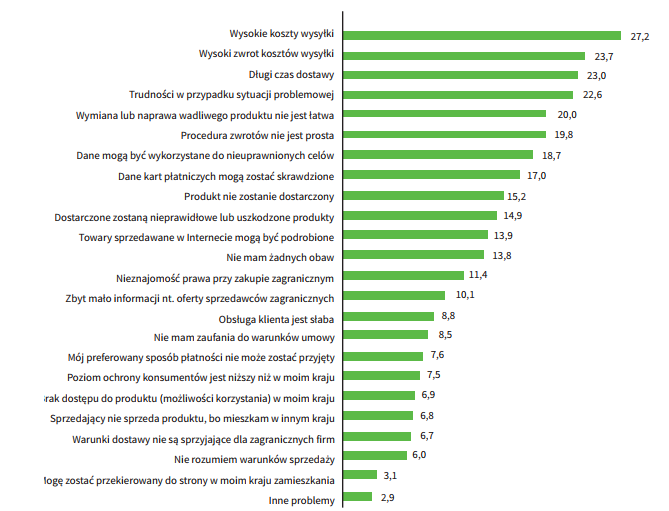Seven cross-border commandments, or what you need to sell abroad
When the mythical Prince Lech founded the Polish state at the heart of Europe, he did not foresee two things ‒ the massive problems that the proximity of the Germanic and Slavic neighbors would cause in the future and the opportunities this would hold in the 21st century; namely e-business opportunities! In the era of a shrinking world, the benefits of EU membership, digitalization and ever-faster transport links, Polish e-commerce is eyeing opportunities abroad. But, how can you create a successful international sales strategy?
On the Polish turf, this challenge has been mostly approached by the local market’s leading players with some e-commerce experience their belt. This has been with mixed results, as we’ve seen quite a few “tactical retreats” such as the case of Allegro.de. So, what do you need to do to start selling abroad? I’ve put together a cross-border septalogue. Unlike the true decalogue, it gives you no guarantee of e-commerce salvation but will help you build awareness and reach your destination like a car navigation system.
1. Thou shalt have other rights before me.
Before you start selling abroad, you must first carry out thorough market research, which includes a survey of e-commerce rules in your target country. This is extremely important. While in the case of EU countries this is not a big deal, the law in other countries may be key to a project’s profitability.
Make sure you know local complaint and refunds rules, customs and tax regulations, etc. ‒ all of them will have an impact on your profitability!
2. Thou shalt choose your place prudently whilst planning to sell abroad.
The most popular destination among Polish e-entrepreneurs are EU countries, mostly the UK (34% of the EU market) and Germany (13% of the EU market). This fact comes as no surprise, as apart from obvious political and legal reasons, these countries offer a great economic advantage with the value of the EU’s e-commerce market standing over 400 billion euros, which promises rich pickings. On top of that, this segment shows continuous growth, which means that it’s not fully saturated.

Interestingly, the market value in some EU countries is lower but buyers’ monthly spending on online shopping is still high (we’re talking average values, of course). This means that the UK and Germany can be considered a good starting point (also due to their large Polish communities), but you may want to expand your view and not limit yourself to these markets. Expanding into Ireland or the Scandinavian Peninsula countries may be a good idea too. Whatever you do, the above figures look encouraging! Seek out your niche!

3. Thou shalt steal (wisely) from your competitors.
When planning to sell abroad, you are well advised to research your local competitors to gain an understanding of customer service standards in your target market and to borrow best practices. At this stage, identify your customers’ metrics (what’s important to them) and consider whether you’ll be able to meet these standards (e.g. fast delivery) or how you can fill gaps (such as low price). Of course, the biggest players can afford to buy or order detailed reports, but it is worth doing this simple exercise in-house as well, if only to compare key data.
4. Thou shalt honor thy client.
When making a purchase from an online store, customers must feel safe and comfortable. Make sure that the service is in their native language. English has become a standard of sorts but, as experience has shown, the most trusted e-stores are those that use local languages. To paraphrase the words of Michael Kliger (CEO of Mytheresa.com): the local language is key in communication with premium customers.

Remember that the above rule applies not only to product presentation but also to customer service. If you can’t afford to set up offices in the target country, think out of the box. Consider solutions such as LiveChat or chatbot, which are big in many foreign markets.
5. Thou shalt remember to optimize (logistics)
The biggest problems with making purchases from international e-stores, as indicated by EU customers, are the high cost of logistics and returns, and longer order processing times. In the era of the Customer 3.0 user, who has been spoiled by the market, this no doubt poses the biggest challenge in project implementation. The more niche product you offer, the more problematic the logistics.
Make sure to automate the process and choose reliable partners. Check which companies currently active in Poland are also internationally recognized and choose your partner accordingly. Such companies have partnership models in place, which mostly solves the problem of experience.
6. Thou shalt not commit adultery with platforms.
In order to make the service of international sales as convenient as possible, making it inexpensive and automated, think carefully before choosing your e-commerce platform. Go for a flexible option that’s able to service multiple warehouses, able to be integrated with a range of internal systems (such as ERP or CRM), and above all, multilingual.
You may be tempted to consider a dedicated solution but, before investing hefty sums to develop one, check open source solutions (such as Magento 2). These platforms will enable you to fully integrate internal processes (also toward an omnichannel experience), but, most importantly, you will gain access to a wealth of ready-made modules (extending the functionality of your online store through, for example, integration with marketplaces). This will also enable the rapid implementation of best practices.
7. Thou shalt bear testimony (e-Marketing)
Choosing the platform, as well as good logistics and service planning, and are not the whole story. When you start selling abroad, you also need to get yourself noticed. Creating an effective performance marketing strategy for foreign markets is a tough call! A different market environment, service and even customer behavior standards mean that a straightforward transfer of your marketing strategy does not always work, or perhaps usually ends badly. If this is the case, use the services of an agency in your target country or one specializing in international business development to be sure that your content and UX standards meet customer expectations and SEO requirements. Of course, this also applies to SEM campaigns, remarketing and e-mail marketing, as well as loyalty programs.
Make sure to consider a presence on marketplaces such as eBay or Amazon, where you will be able to attract new business by combining presence and effective remarketing campaigns.








